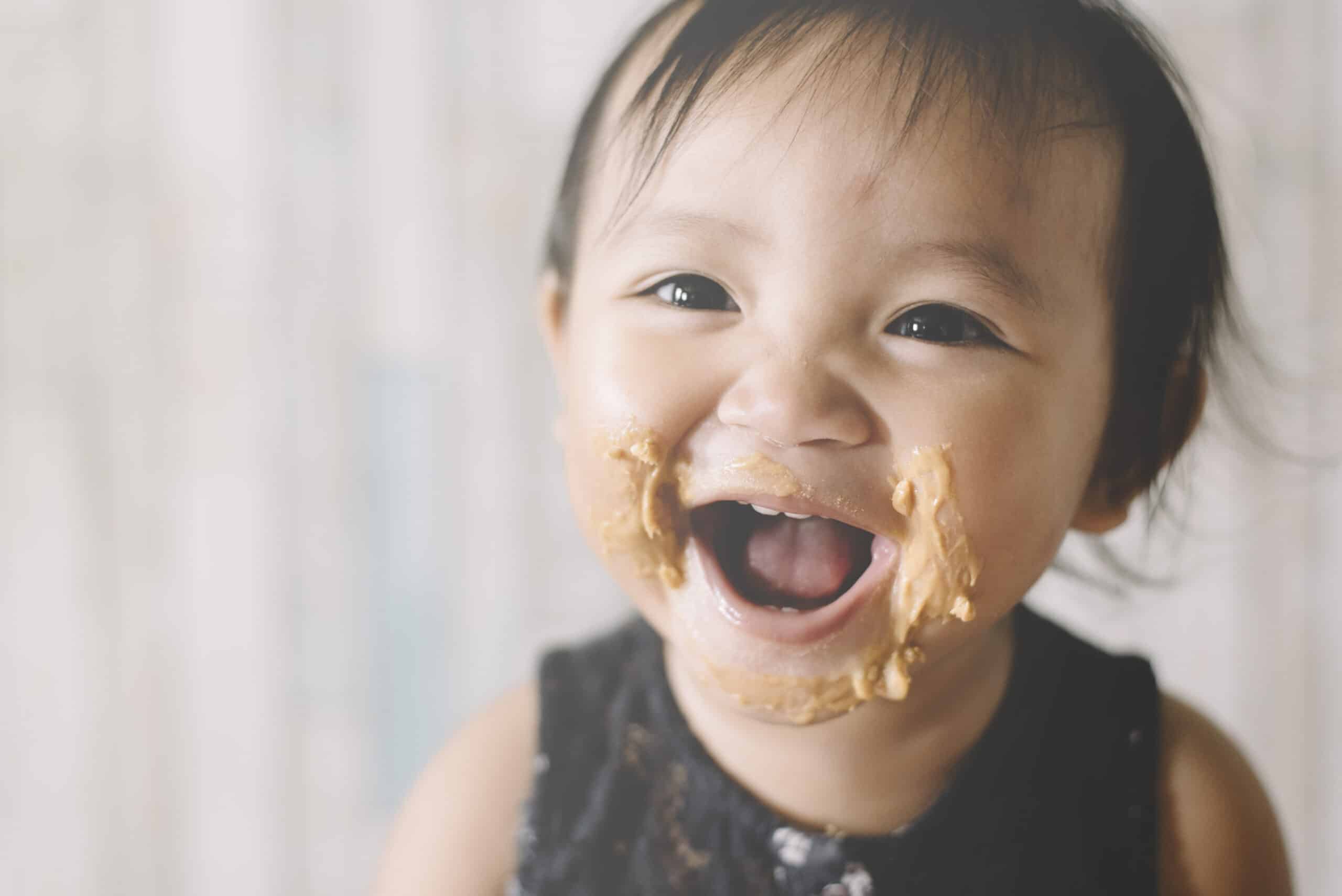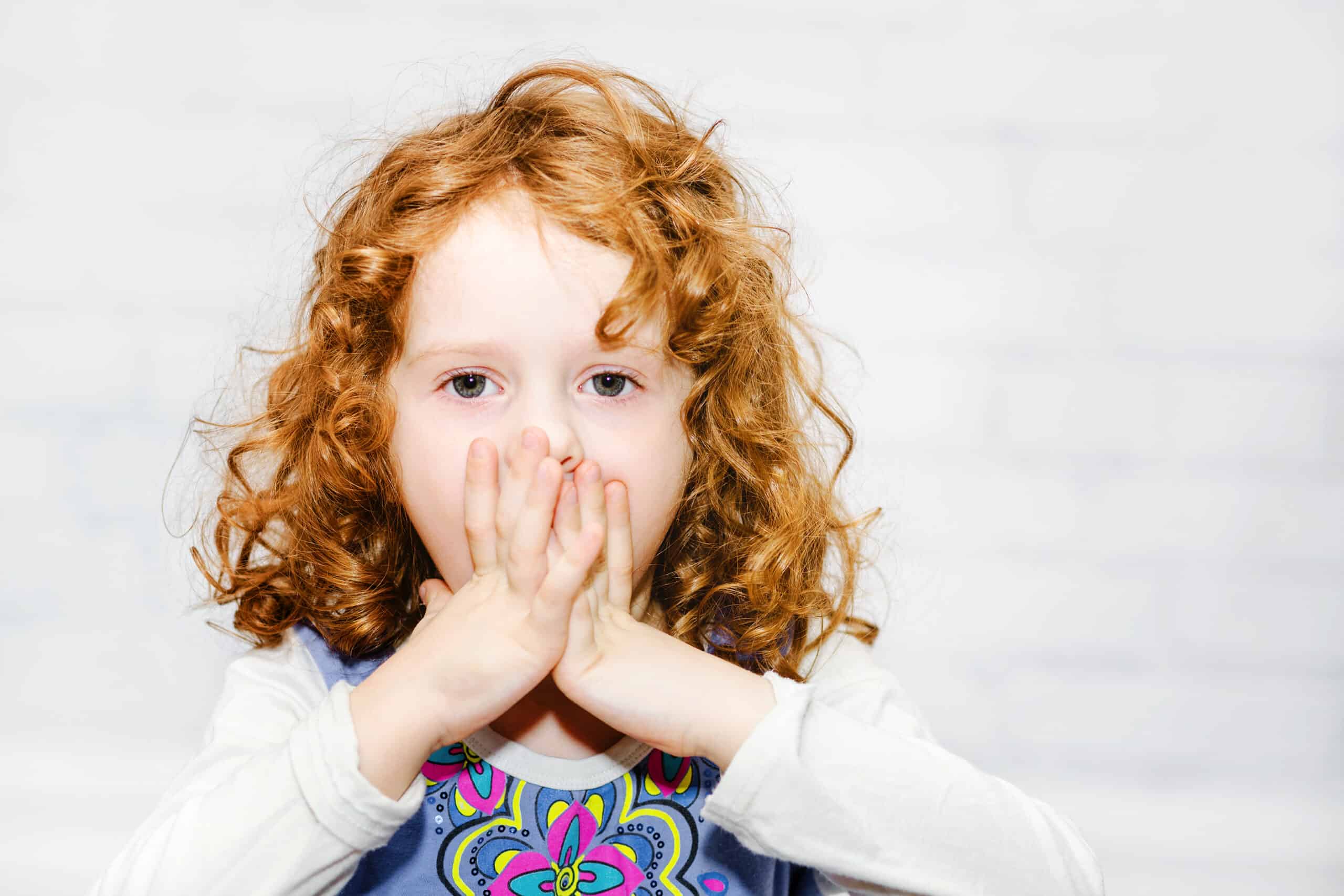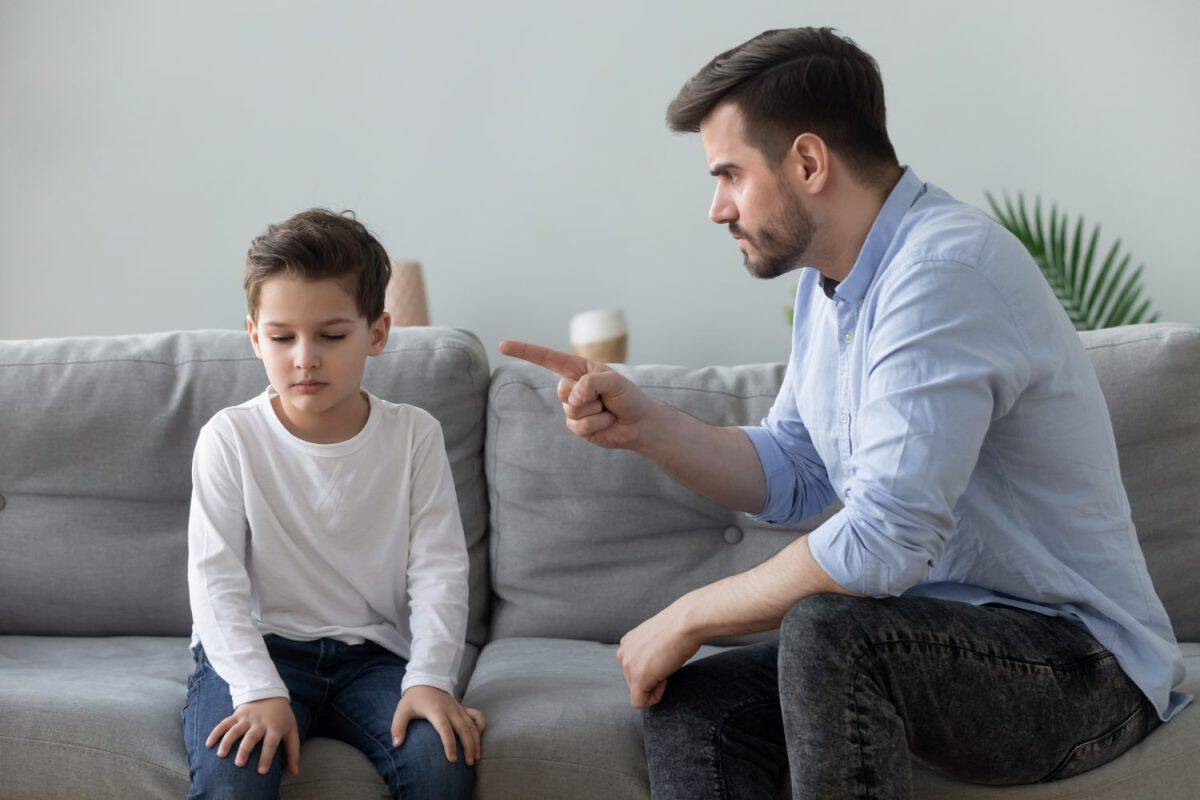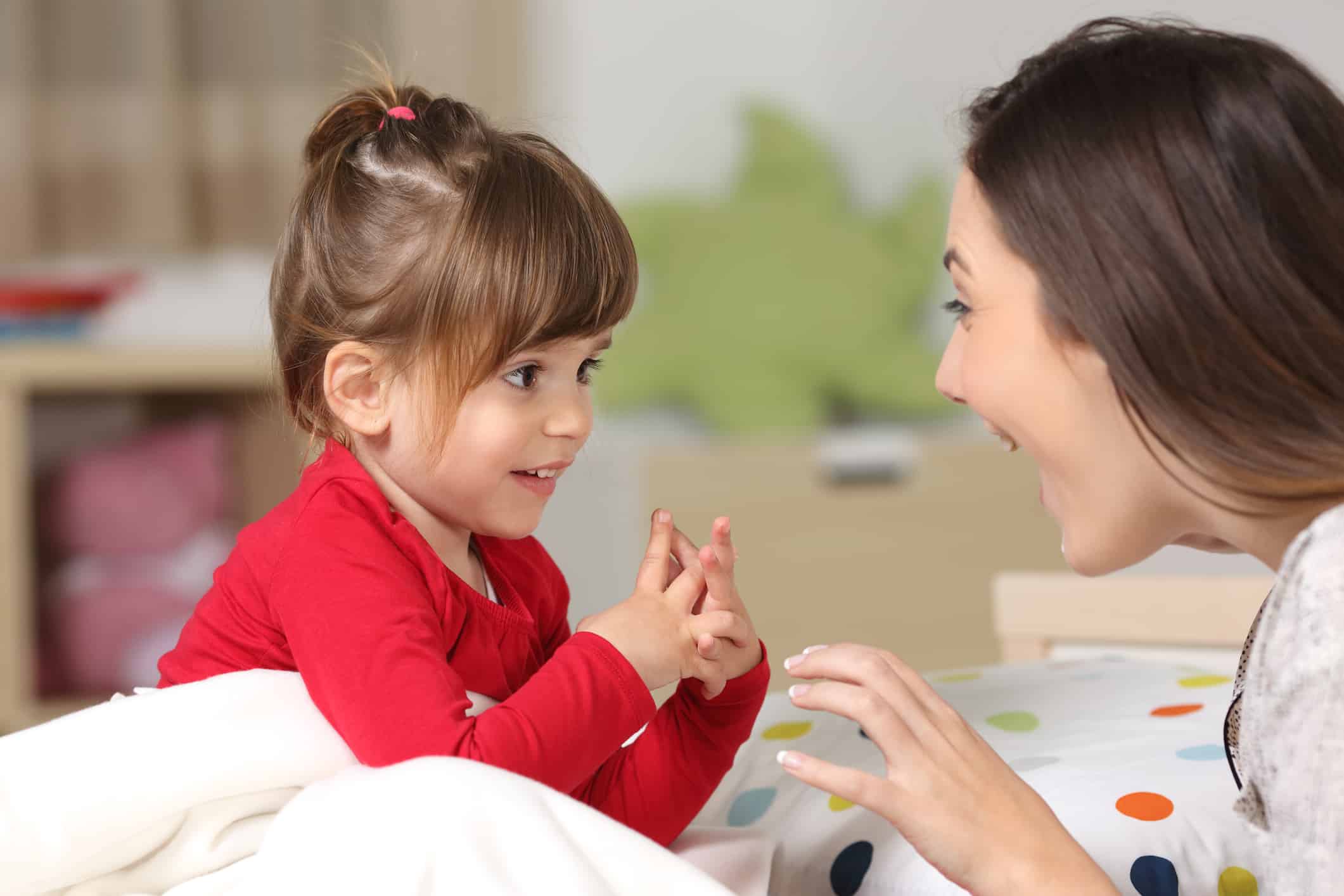As long as humans have been on this earth, parenting myths float from generation to generation. There have always been parents who believe they know the right way to raise a child. Like everything else, parenting has changed through the years. At one time in Ancient Greece, medical doctors recommended salting down their babies before swaddling them. Children were expected to be seen and not heard a few millennia ago. No one has all the answers. However, some parenting myths have been repeatedly disproven and should go extinct.
There is never just one right way to raise a child. However, as time passes, new generations discover better ways to parent or that certain practices simply aren’t what is the best. The parenting myths on this list are ones that confound parents time and time again, especially with the updated information we have about health (especially mental health), attachment, and more.
Vaccines Cause Autism

©PeopleImages.com - Yuri A/Shutterstock.com
A disproven parenting myth that circulates in the parenting world is that vaccines cause autism. This myth can be traced back to a study done in 1998 and one in 2002. According to Children’s Hospital of Philadelphia, both studies are faulty.
Since those studies have come out, more and more have been done that disprove this myth. These studies point towards a child developing autism while in their mother’s womb.
Giving Any Type of Peanut Butter Early Will Cause Allergies

©Hafiez Razali/Shutterstock.com
For quite a while, advice was to avoid giving any peanut butter to a baby early. This was supposed to help them avoid a severe peanut allergy. However, those recommendations have changed.
Studies have shown that delaying giving peanut butter to a child really has no benefit. In fact, a study in 2015 found that it may be the exact opposite that helps prevent a peanut allergy.
Nonverbal Children Do Not Know What You Are Saying

©Yuliya Evstratenko/Shutterstock.com
The common misconception is that nonverbal children cannot understand what anyone is saying. This myth is often a great source of pain for families and children who are nonverbal because it leads some people to say and ask things they usually wouldn’t.
Although a nonverbal child may not be able to communicate in the traditional sense, there are other ways for them to do so. Sometimes, they can learn to write, use ASL, or use picture cards. There are many different ways for them to learn how to communicate well.
Crying It Out Will Help Your Baby Learn to Self-Soothe

©FamVeld/Shutterstock.com
The crying-it-out method has been around for several decades. Some parents believe that leaving a child to cry in a room alone will help them learn how to self-soothe. However, this myth has been debunked time and time again.
For starters, babies do not learn how to self-soothe. It has been proven that when babies cry and their cries are responded to, their brains create a new neuropathway. However, crying it out (letting your baby cry until they finally fall asleep) has negative side effects.
Kids Who Misbehave Have Terrible Parents

©Kuznetsov Dmitriy/Shutterstock.com
Many people have the misconception that if a child is misbehaving in public, at school, etc., then it is the parents’ fault. While it’s true that parents are responsible for guiding and correcting their children, they don’t control them.
All children are humans with different temperaments and personalities. They are also learning to live in a big world while trying to understand their emotions and those around them. They may not necessarily understand boundaries yet, or they could be having a bad day. Adults have those; it’s understandable that kids do, too. Therefore, it’s important to remember a child’s misbehavior doesn’t always correlate directly to good or bad parenting skills.
Kids Grow Out of Terrible Behavior

©Studio Romantic/Shutterstock.com
On the flip side, some people believe that children grow out of terrible behavior and that there’s no need for corrections. However, there are examples in the news, through history, and more that prove over and over again that this isn’t true. No, parents should never beat their children and scream at them to discipline them. However, all children need guidance and correction.
A popular parenting advice is, “If you think the misbehavior is cute now, add ten years to your child’s age. Is it cute, then? If not, the behavior should be corrected.”
Discipline Means Spanking/Hitting Your Child and Yelling

©fizkes/Shutterstock.com
Disciplining a child doesn’t have to look like spanking them. There are plenty of ways to offer guidance and correction to a child without the old parenting styles that boast spanking and yelling as the solution.
There are plenty of studies that show that spanking a child and using an authoritarian parenting style can have negative effects. It can lead to a higher risk of anxiety or depression disorders and alter a child’s brain function. There are also better ways to discipline and correct a child. Additionally, not every misbehavior requires discipline. Sometimes a child needs gentle guidance as they learn more and more about their world and environment.
Boys Don’t Need Emotional Support Like Girls

©fizkes/Shutterstock.com
There is a common and disproven parenting myth that girls need all the emotional support from their family and boys need to rough house. While it is true that some boys are rougher than girls and they play differently, they still have emotions.
It’s also true that maybe boys don’t show their emotions like girls do but having that emotional support from their parents is still meaningful. This is because it helps form a strong connection. Additionally, emotionally supporting your son helps them learn to navigate their feelings, and know that emotions are okay and that they should talk to someone about them. It doesn’t make them weak; it makes them human.
Motherly Instincts Always Kick in

©kali9 / E+ via Getty Images
For some, motherly instinct does kick in when you have a baby. However, this isn’t always the case. For other mothers, the mother instinct and bond take time, maybe even months or years, to kick in. Additionally, for other people, motherly instinct never kicks in.
So, if you feel like the motherly connection between you and your baby is missing, it is always a good idea to talk to a doctor about how you are feeling.
Having a Kid Will Make Someone Responsible

©cunaplus/Shutterstock.com
For some, the belief that having a child makes a person responsible is an annoying myth that won’t die. While this way of thinking continues to prevail, it’s been debunked plenty of times.
One way this myth gets debunked is when someone not ready to have a baby brings another child into this world. This may not be the case every time, but there are plenty of times in history when a person has a baby before they are ready, and the child ends up suffering.
Only Lazy Parents Give Their Children Medicine for ADHD (or Anything Else)

©MGARCIA_CREATIVE/Shutterstock.com
A child who takes medication for ADHD or a mental diagnosis like depression or anxiety doesn’t automatically have lazy parents. In today’s world, medical advances have allowed us to learn more and more about what ADHD is, how anxiety presents in a child, and more. A parent with a child who takes medication is most likely a parent who cares greatly for their child’s well-being.
Children Who Express Emotions Outwardly are Misbehaving

©Sharomka/Shutterstock.com
Most everyone has been there: in public, when all of a sudden, you hear a loud shrill coming from an unhappy toddler. Some people may look at that parent or caregiver and encourage them, saying, “Don’t worry; I’ve been there before.” Yet, repeatedly, moms and dads walk away with their own horror stories of how they were reprimanded by someone who “knew how to parent their child better.” How could their child act this way in public? They need to learn to control their emotions!
However, children, especially when young, don’t automatically know how to control their emotions. Expressing these emotions does not make them a “bad kid” or weak. It simply means they are human and learning.
For a Baby to Sleep, the House Needs to be Silent

©Christin Lola/Shutterstock.com
Some are told that for their baby to have the most restful sleep, they have to tiptoe around the house and make sure all their older siblings are quiet, too. This myth can be stressful for moms trying to survive the early days of having a new baby.
Babies can learn to sleep through some noise. So, don’t sweat it if you have young toddlers or children in the house who can’t stay quiet for long periods. Common household noise is normal, and babies can learn to sleep through it as they get older.
Parents Should Be Their Child’s Best Friend

©fizkes/Shutterstock.com
Having children can and should be fun; being friends with your child is not wrong. Yet, as a parent, your primary job is raising your child. With this job comes many tasks that your child will not necessarily like, such as correction and guidance.
There will be plenty of time to be your child’s best friend as they grow into adulthood. Right now, they need parents.
Holding a Baby Too Much Spoils Them

©Jacob Lund/Shutterstock.com
This disproven parenting myth has been floating around for as long as anyone can remember and pops up at the most annoying times. Perhaps it’s your great aunt who tells you that you have been holding your little one far too long; 30 minutes is enough! Regardless of when this myth pops up, it’s important to remember that you can’t spoil a baby.
Holding your child helps them in more ways than putting them down crying. Whenever your baby’s needs are met, not only are they connecting to their parents, but this also creates a deeper attachment. Besides, they are babies for only so long, then they will be toddling around and won’t have time for you to hold them!
Cold Weather Makes You Sick

©Mariana Serdynska/Shutterstock.com
This common myth has some basis behind it. According to Northwestern Medicine, lower temperatures in the winter can increase the chances of getting sick. Yet, going outside in the winter doesn’t automatically mean you’ll get a cold. Bundling up, washing your hands, and keeping your hands off your face during the winter can help fight illness, even if you spend plenty of time out in the cold.
Speaking Different Languages in the House Will Confuse Your Child

©iStock.com/AntonioGuillem
Often, parents who are bilingual or multilingual are told that they should only speak one language while at home with their child. It is a common but disproven parenting myth that speaking two or more languages around children just confuses them.
Yet, time and time again, it has been proven that children pick up on second languages more easily than adults. Therefore, speaking more than one language in the home may benefit your child immensely.
Your Job is Done When Your Kid Turns 18

©PeopleImages.com - Yuri A/Shutterstock.com
“You only have 18 short summers with your kids,” or “Just wait until they turn 18, then you’ll be free.” Sure, your relationship with your kids changes as they age. Yet, children do not just stop needing their parents when they turn 18 years old. Your job as a parent remains until the day you die.
Dad’s Babysit Their Kids

©RyanJLane / E+ via Getty Images
Moms everywhere do a collective eye roll when asked, “Oh, is dad babysitting your kids today?” Somewhere along the way, dads were given the image that they only have to provide for the income; everything else falls on mom. If they do happen to take care of their kids (like equal parents should), many are praised by the older generations for “babysitting.”
However, being a father comes with the same set of responsibilities that being a mother does. That is why this myth should already be extinct.
One Last Note

©Drazen Zigic/Shutterstock.com
Being a parent is not easy. A million different voices tell you the right and wrong way to raise your child. Throughout centuries, myths have come and gone. What may have worked for parents a century ago may not be the best course of action today. This is especially true, as we learn more and more about different aspects of raising a child, such as attachment, allergies, and how a brain processes information. This is why the disproven parenting myths on this list can go extinct anytime now.
The image featured at the top of this post is ©Photoroyalty/Shutterstock.com.
